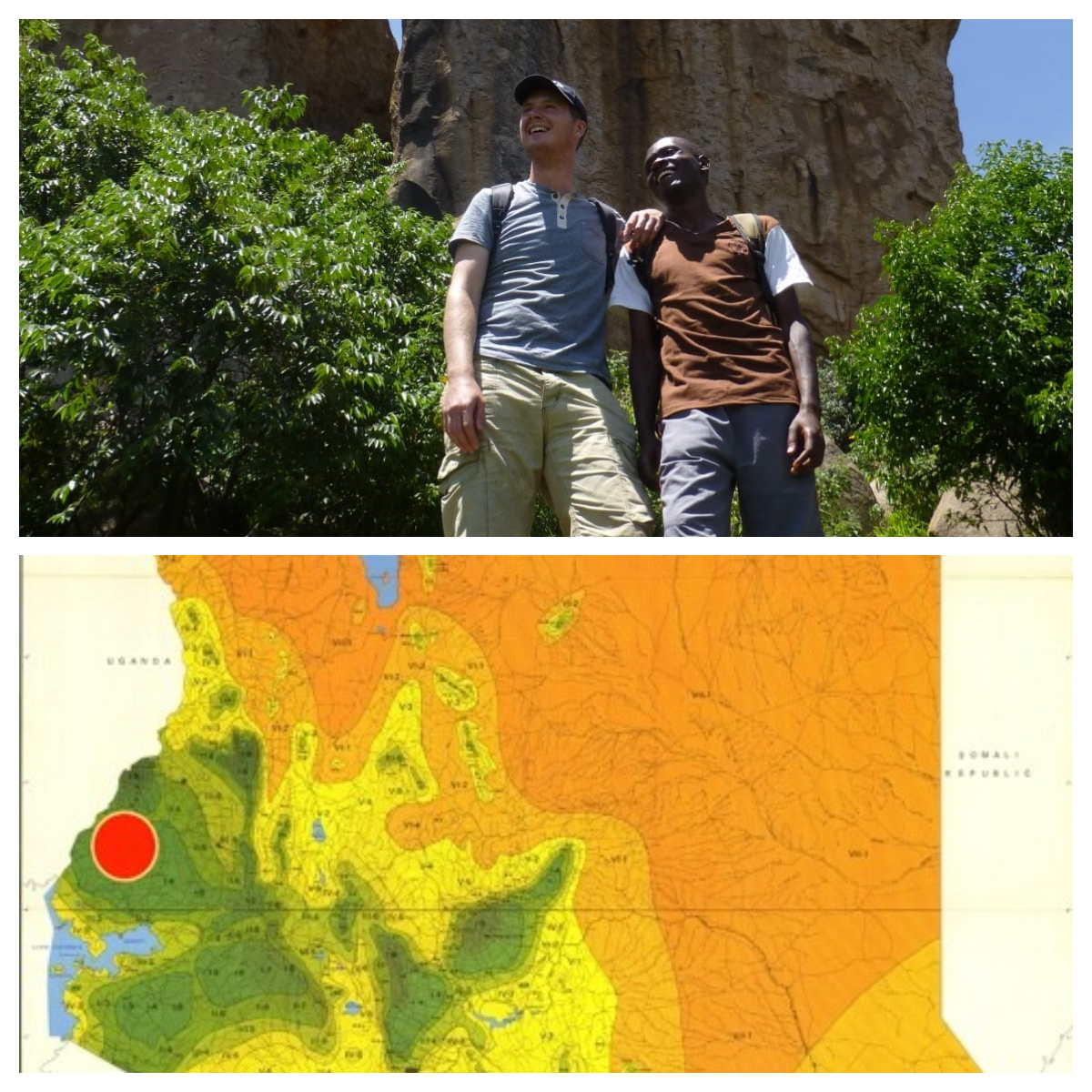Pauls Plantation
Western Kenya

Close to the equator, Paul's Plantation is alonside the great lake Victoria
Planted by Golphat Wanyonyi
I am Golphat Wanyonyi. While doing voluntary community work I met Paul and Jenna. We became great friends and hiked in the hills around here. After studying education at Moi University, I established BzB, a beekeeping co-operative. So far we have 80 hives. I train my colleagues so they can give secure and healthy homes for around 4 million honey bees. We care for our bees! In return, a couple of times a year, we harvest their surplus honey. Traditional beekeepers sacrifice the whole swarm each time they gather honey. With our Langstroth hives the surplus is collected in frames we can easily remove without destroying the colony. Trees, blossoms, bees and keepers, we all help one another.
Our bees range freely across the countryside to forage nectar from miles around their hives - did you know that they visit over a million blossoms for every jar of honey? Acacia, Mango, Macademia, Manuka, whatever is in flower. Each bee colony works hard to keep their hive at an even temperature. That’s why we are planting trees. The shade from these will help protect the bees from our hot sunshine.

Here is my mum Amina Wekulo planting a eucalyptus, the first of 100 trees on our land in Bungoma, Kenya. These and Grovellia will grow tall and strong and provide the shade we need for my beehives. We call this Paul’s Plantation in honour of our friend.
Western Kenya straddles the equator alongside the great Lake Victoria. It is the country’s fertile centre of agriculture. Over half the tea we drink in the UK is grown here, Kenyan coffee is renown. The prevailing westerly breeze is moistened as it crosses the great lake, rain falls in the mountainous, forested highlands, rivers reliably irrigate the land as they run back to the lake. In this region lies the county of Bungoma with its ample sunshine and warm climate, A wide variety of crops flourish: maize, sugar, fruit orchards. All are pollinated by bees and other insects as they forage the blossoms for nectar.